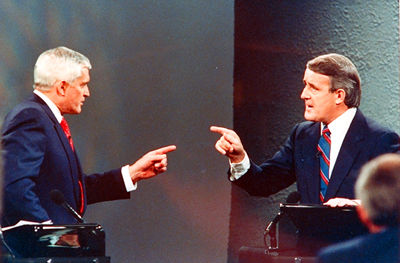Macleans
Martin's 1999 Budget
"I wasn't sure if he was running for leader of the party or president of Cuba," one Liberal backbencher whispered as Finance Minister Paul Martin wrapped up his one-hour, 20-minute budget speech to Parliament last week.This article was originally published in Maclean's Magazine on March 1, 1999







